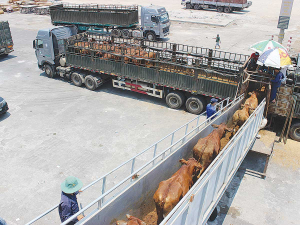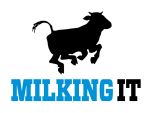OPINION: As the Galloway Express left Port Taranaki last month with cattle for China, it marked the end of livestock export.
A nationwide ban is now in place, imposed by the Labour Government to “protect New Zealand’s reputation as an ethical food producer”.
Sadly, the ban takes no account of how the loss of live exporting will be felt throughout the country.
Federated Farmers president Andrew Hoggard is worried about the flow-on effect of not having live exports.
Even with live exports, it was hard and frustrating for farmers to dispose of their bobby calves – especially in relation to getting killing space at freezing works.
Hoggard has neither done bobbies nor exported calves. He always managed to get people to buy his beef calves. But in the last few years the market has crashed. Suddenly, if we are going to push through 200,000 extra calves without live exports, it could mean even lower prices for farmers, he warns.
He questions claims that live animal exports threaten NZ’s export credentials and says, if there were any problems, that would be a reason for putting a ban in place.
The livestock export ban will also hit farmers and sharemilkers who raise a few extras, maybe a dozen or even 20 surplus animals, for export sales each year.
This provided an excellent boost for their income, particularly sharemilkers, if they were trying to build up a bit of capital, because their main asset is livestock.
So that good avenue would now be taken off the table and for farmers that’s one of the big frustrations with losing that trade.
But not all is lost. The decision to ban live exports from April 30th could be short-lived, however, after National leader Christopher Luxon announced they will resume, albeit with stricter rules, under his party’s agricultural policy if it is elected in October.
Hoggard supports National’s policy, adding that it’s a good thing – especially if there is an excellent standard of care on the journey.
“I haven’t heard anything from overseas with people saying they are not going to buy anything from NZ because it has sent surplus heifers to China. It’s possible the Chinese may not be that interested in buying our milk powder because we are not willing to help them with their dairy industry,” he says.
Hoggard says sometimes he thinks that NZ makes up justifications for other countries to put trade barriers against us. He says we should be championing what we do, not coming up with excuses for other countries to put us down.










